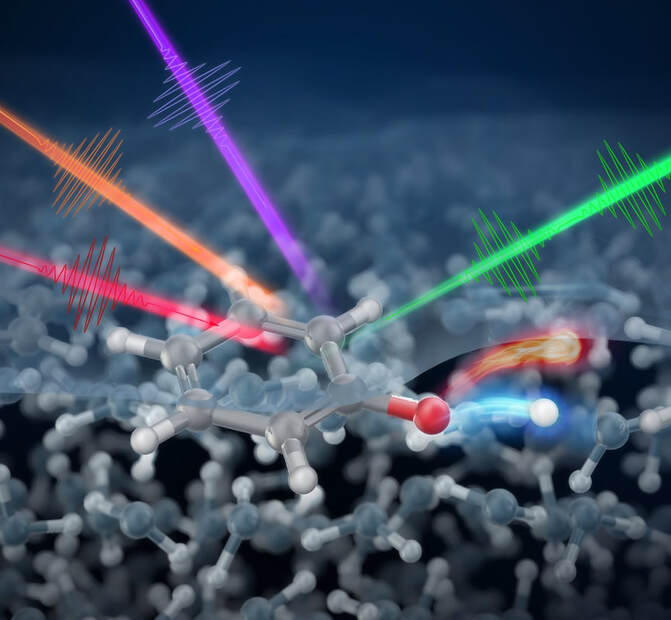|
Molecular Spectroscopy is a vast field of learning that includes methods for the evaluation of electromagnetic radiation in the observable and invisible wavelength varieties. The energy of this radiation is divulged from several means along with electromagnetic waves such as infrared, microwave, terahertz, ultraviolet-visible and X-rays and also elements such as muons, electrons, protons, neutrons, gamma-rays, and photons.
Based on the source of radio energy, various means of molecular spectroscopic are utilized. Consequently to their structure, molecules have ideal kinds of energy states which give surge to the ideal molecular spectral patterns detected in the electromagnetic spectrum. These forms may be produced by vibrations, rotations or electronic excitations. The atomic nuclei of the particle also have discrete energy patterns that can be detached by a magnetic field, giving surge to nuclear magnetic resonance spectroscopy. In Molecular Spectroscopy, a particular substance is exposed to electromagnetic radiation of different wavelengths and the caused molecular spectral pattern is registered on a spectrophotometer, a part of laboratory device usually called as a spectrograph. The specrophotometer consists a light source that can be accustomed to liberate any required wavelength of electromagnetic radiation and a deflection grating device that expands the energy of the light into various frequency compounds. The molecular spectral series of the sample is further captured by one or many sensors and changed to digital values. For instance, the hydrogen spectral line sequence was a tentative paradox that was resolute in the 1920s and led to the growth of the Rutherford-Bohr theory of the atom. This description, created on the quantum theory of atomic structure founded by Max Planck and Albert Einstein, offered the foundation for the whole field of quantum theory. A diversity of spectroscopic methods exploit the various kinds of energy states of atoms and particles. These spectra offer important data regarding the structure of the tester being survey. There are numerous benefits of Molecular Spectroscopy and it also helps in knowing about the various methods. The main kind of molecular spectroscopic, absorption spectroscopy, includes lighting with an expansion of wavelengths and the thought of the missing wavelengths that are engrossed by the sample. This is made probable by the fact that many atoms and particles have quantum energy levels consistent to ideal, identifiable energy fingerprints. These are usually described as fluorescence lines in a spectrum, and can be utilized to detect a specific material. While a sample is illumined with light, several kinds of atoms and molecules will have a relaxation procedure to decrease energy states. This is generally convoyed by the release of radiation at a characteristic wavelength. This can be assessed as a spectrum which can also be utilized to detect the chemical composition of the specimen. Other spectroscopic procedures consist pump-probe spectroscopy which utilizes ultrafast laser pulsations to measure reaction intermediates on the femtosecond period, and ocular activity spectroscopy which gives data regarding chiral centers in particles. These methods are mostly used by organic chemists, mineralogists and planetary scientists. Additional to these Molecular Spectroscopy methods, there are some nuclear MR and x-ray spectroscopy procedures which probe atomic and molecule constructions on a vast scale. Hadron spectroscopy, which evaluates hadrons as per their spin and parity, is other kind of particle spectroscopy that provides insights into atomic structure. Every kind of spectroscopy has its own benefits and drawbacks. It is essential to note that some substances and samples may inhibit with the EMR utilized in spectroscopy, making it tough or impossible to get important information. Additionally, some spectroscopic methods can be time-taking and resource-intensive. Raman spectroscopy is a non-destructive study process that can be conducted on solids, liquids and gases.
0 Comments
|
AuthorWrite something about yourself. No need to be fancy, just an overview. Archives
July 2023
Categories
All
|

 RSS Feed
RSS Feed
